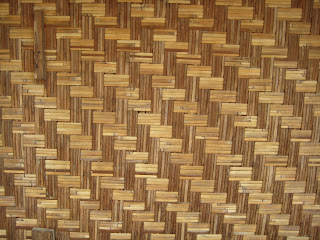So, I left off around the middle of my time in Nujiang. I had been suffering from what was in all likelihood dysentary and was prescribed an assortment of pills only identified by their Chinese names. Ultimately, I called the SIT doctor in Kunming to ask if these pills were okay to take, and it was a good thing I did because several of them could have caused major liver and kidney damage. He recommended the right pill in time for me to make a trip to Laomudeng, where Xiao Cui's family lives. Laomudeng is a Nu stronghold high up in the mountains of the valley, about three hours from Fugong. The drive was spectacular and both tortuous and torturous (word play!). I remember writing in my private journal that it would have been easier to drive on if they had just left it as a mountainside instead of trying to civilize it into a road--an hour and a half straight of jolting in potholes, hairpin turns, and general unhappiness. We soldiered on, however, to a small town called Bijiang, which used to be the size of a city but has since been largely abandoned. The peak of the mountain upon which Bijiang perched afforded a remarkable view looking back over the valley toward Fugong from a beautiful little pagoda.
The Bijiang pagoda overlooking the valley

The spectacular view of Nujiang Valley from Bijiang

Found outside the pagoda-- this statue of Mao now salutes the sky, as it has been pulled down. By nature or by human hands, I don't know. But I found it very intriguing.

While we were in Bijiang, I saw a tall man walking down the street-- a man with blonde hair. I asked some of the people around who he was, and they told me he was a doctor with UNICEF, there doing relief work. Would I like to meet him, perhaps give him a hug? I politely declined. But, alas, we were destined to meet.
For as I wrote almost nine months ago, we then drove back to Laomudeng, intending to walk through the village to Younger Sister's natal house. But during the walk I fell off the steep retaining wall along which the path ran, right into some poor Lisu family's yard. It was a very scary moment, as for awhile I wasn't sure how or where I was hurt. Eventually I realized that I wasn't able to put weight on my left foot and that I was feeling dizzy from what was probably a mild concussion. The lovely strangers into whose yard I had fallen invited me in, arranged me in their living room, and went to get the UNICEF doctor from Bijiang. The living room was a sparse, concrete box. I was lying on the only piece of furniture, a couch running along the back wall, and the only other thing in the room was an enormous TV/DVD system, in front of which a little Lisu child sat. I groggily lay back, drinking some hot water and eating a bowl of rice that was brought to me. In my haze, I heard the unmistakable sound of Rufus Wainwright's voice, and I was sure for a minute that I must have more than a mild concussion, as I seemed to be hallucinating. But when I turned my head, I realized that the Lisu child was watching the Chinese version of MTV, and Rufus Wainwright was performing on a music video. It was a truly bizarre moment, both surreal and transcendant. Here I was, 15 hours from a decent hospital, lying on a stranger's couch in a place where people spoke a language I didn't understand, with nearly no one of my ethnicity miles around. And then there was this reminder of the extraordinary power of globalization reminding me that no matter where you go you're never really far from America.
Eventually the UNICEF doctor showed up. He told me he only had EMT training but was able to guess that my foot wasn't broken and put it in an improvised splint. He also referred me to some Canadian friends of his living outside Fugong, who could provide me with crutches and generally help me out during the next week. I would later find out that these friends were illegal missionaries (Fugong is filled with them), but regardless of their reason for living in Nujiang they were incredibly generous with me, even offering to let me live in their house for awhile.
The ride back from Laomudeng was, to be quite frank, awful. It was, of course, just as bumpy going down as it was going up, but this time I felt every tiny vibration in my injured foot. To make things worse, the county had started a construction project on the road in the middle of the day, creating a blockage for almost two hours. This is an example of the sort of thing that happens in China all the time but would never happen in America. I was furious and sore by the time I got back to the hotel, but Older and Younger sister were very good to me, bringing me food and telling me stories. They would care for me similarly for the next couple of weeks, as would Foster Dad and his wife. Although it was a scary ordeal that made my last few weeks in China infinitely more difficult, my fall actually resulted in a much more intimate connection with the Lisu friends I made in Nujiang, an idea that has ultimately played a central role in the thesis I'm writing this year.
The intricate criss-cross pattern of a wall in a traditional Lisu home near Laomudeng



































